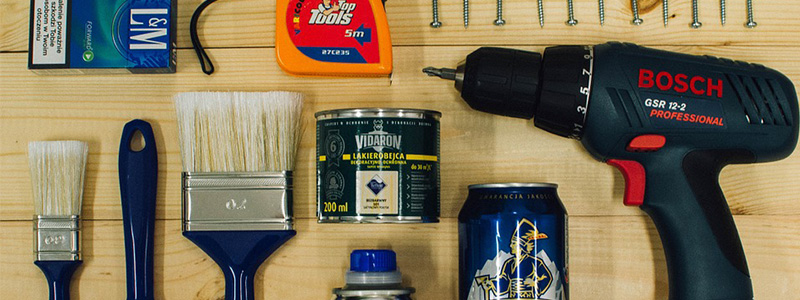Did you receive the home inspection report on a house that you want to buy and the long list of necessary repairs has you worried that your family will be eating ramen noodles for months to pay for the repairs? Before you tell your real estate agent to back out of the deal, take a deep breath and relax, because it is possible to get the seller to pick up some of the repair costs. Here’s how to negotiate repairs after a home inspection.
Why a Home Inspection is a Must-Do
Buyers are sometimes so eager to move into a home that has stolen their heart that they think about skipping the home inspection to smooth the path through escrow.
However, it’s never recommended that a client opt out of a home inspection because it leaves the buyer open to an unknown number of costly repairs. It’s always better to have a complete understanding of a home before you buy it.
What You’ll Learn From a Home Inspection
Purchasing a home is an enormous financial commitment, and it’s vital that you do everything possible to make sure that the house that you buy is a healthy investment. One of the primary ways to protect your investment is to have the property evaluated by a home inspector certified by the Oregon Construction Contractors Board. A typical home inspection checks the condition of the following areas:
- Heating and Air Conditioning Systems
- Plumbing
- Electrical Wiring
- Roof
- Attic
- Exterior and Interior Structure
- Foundation
- Windows
- Appliances
Depending on the home, you might also decide to pay for additional inspections on the roof, electrical, and plumbing systems. As the buyer, you’ll pay for these additional inspections, and a copy of the report will go to both you and the seller.
The home inspection will give you a decent idea of the overall condition of a house. As a result, you’ll know about any costly repairs that the house requires before you go any further in the home-buying process.
However, you should know that almost every home inspection report notes the need for at least a few repairs and the presence of a statement calling for work on the property doesn’t mean that you should walk away from a house that fits your needs.
Negotiate Repair Costs With the Seller
The first thing to understand as you begin reading a home inspection report is that in Oregon, the seller is not required to pay for any of the repairs. However, in practice, it is usually possible to negotiate an agreement for the seller to pick up the cost of some of the repairs. Here are some helpful tips on how to negotiate repairs after a home inspection.
Tip #1: Choose Your Repair Requests Wisely
It’s generally not a good negotiating strategy to ask the seller to pay for all of the repairs that the home inspector noted in the report. Instead, work with your real estate agent to come up with a smaller number of fixes that you want the seller to complete before the sale. Keep in mind that asking the seller to pick up the cost of cosmetic changes is usually a no-go.
Tip #2: The Home Inspection Report Stays With the House
Did you know that once an inspection report exists on a property, the seller must notify a prospective buyer of the inspection results? This fact gives you negotiating power because the seller can’t merely walk away from the report by refusing to negotiate and letting you drop out of the sale. The fact that the inspection report remains with the house is often a powerful motivator for the seller to agree to cover some of the repair costs.
Tip #3: Offer a Credit Option
Sellers sometimes balk at making repairs because they can’t afford to pay for them before the sale of the house. In this situation, you can offer a closing cost credit as an alternative. A closing cost credit means that the seller will pay for closing costs that the buyer pays typically. So, in this scenario, the seller would pay for such things as title insurance, fees to the lender, title company charges, and points on your loan.
Tip #4: Be Willing to Walk Away From the House
No matter how much you might love a home, you must indicate that you’re willing to back away from the sale if the seller doesn’t help pay for the house repairs. Savvy buyers don’t let on about how much they love a house during the negotiating phase. Be careful about doing things such as visiting the property to measure for your furniture placement until the completion of the repair agreement.
A willingness to walk away from a home purchase is perhaps your most robust negotiating tool. After all, the seller wants to finish the house sale quickly, and it’s often more difficult to sell a house after it has previously fallen out of escrow. Thus, it’s often in the seller’s best interest to pay for a reasonable amount of repairs.
Rely on Your Real Estate Agent
Stay confident throughout the negotiating process because you, hopefully, have an experienced negotiator in your corner. Successful real estate agents are potent negotiators who know how to navigate home sales that match the condition of the housing market. In our current market, for example, an expert real estate agent might recommend a different approach to negotiate repair costs that would be appropriate in a soft market where there are more homes on the market than buyers.
Last Thoughts
Even brand new homes and superbly maintained older homes could come with repair needs. Don’t allow a home inspection repair report to keep you from buying a house that otherwise fits your needs. Instead, depend on your real estate agent to work with the seller to reach an agreement for the seller to pay for some of the repairs.
Communication is the key to successfully negotiating a repair agreement-if you need an experienced real estate agent in your corner CONTACT me at leah@leahhyland.com to chat about all of your home buying and selling needs today.
 Facebook
Facebook
 X
X
 Pinterest
Pinterest
 Copy Link
Copy Link


